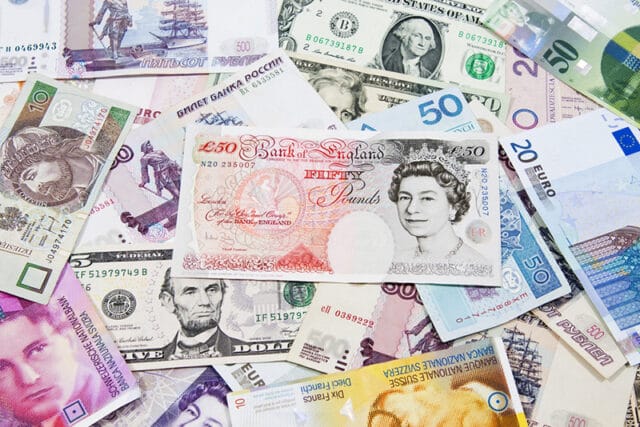Portfolio diversification is an investment strategy designed to minimize risk exposure and optimize profits by distributing investment allocations among different assets. If you put all your money in one type of security, you risk making substantial losses if the market goes against you. Therefore, you diversify your portfolio so that you have a hedge against unforeseen market downturns.
Some of the common ways of diversification include mutual funds, stocks, and bonds. One of the most overlooked ways to diversify is by using different currencies. Currencies of various countries perform differently according to changes in factors like economic conditions, political climate, and inflation rates.
Diversification in the currency market requires a blend of currencies with high correlation and those with weak correlation. Of course, your selection of currencies should be guided by supporting evidence of strong performance and its relevance in international trade.
Some currencies are a good fit for persons who are interested in stable returns as opposed to volatility. A good example of a stable currency is the Swiss franc.
Approaches to diversifying your portfolio with foreign currency
Many people argue that trading currencies are not a form of investment because, after all, you are handling cash. However, with the right level of diversification of local and foreign currencies, you can achieve much more than investing in your local currency.
With this type of diversification, you leverage the changes in the value of different currencies to make profits.
The other effective way to benefit from a diversified currency portfolio is by putting your money in assets in foreign markets denominated in foreign currencies. You could do this by apportioning part of your earnings from foreign stock markets to be paid in foreign currency.
However, your choice of a stock market should be guided by its profitability and the strength of the local currency. Importantly, you should be guided by the economic performance of the stock market’s host country. This will cushion your investment from things such as hyperinflation, which may devalue the local currency.
The currencies to add to your portfolio
Your choice of currency should be guided by its performance in recent months as well as the economic performance of the issuing country. You should avoid going for currencies of countries that have recently maintained consistently low-interest rates.
Instead, you should go for currencies whose issuing countries have stable economies but with good interest rates. For example, you could dump USD because of the low-interest rates (almost zero percent) and take up AUD (interest rate about 4 percent).
Another option you should consider is to invest in currencies whose performances are cyclical. For example, you could ensure that a large portion of your portfolio is made up of currencies whose performances are tethered to the commodity market. This would be a good move during periods when the global commodity market is experiencing fast growth.
For example, it would be quite profitable to hold AUD when the global iron prices have been on the rise because of Australia’s status as the world’s largest producer of iron. The same reasoning applies to holding the Saudi royal when global oil prices are on the rise.
Conversely, holding commodity-driven currencies when global commodity prices are on a decline would be a bad idea because the currencies would lose their value. Therefore, if you are keen on diversifying using foreign currency, you need to keep your eyes on the performance of the global commodity market.
The best places to get foreign currency?
A key consideration when investing in foreign currency is knowing where to get them at the best rate. In addition, you will need to avoid costly charges levied on foreign exchange. This is one of the reasons why banks are not the best places to go when trading forex.
In addition, transacting with forex dealers will give you more freedom in terms of their operating hours. Many dealers offer 24/7 support, which is an advantage over banks. If you want efficiency in forex transactions, then a forex dealer would be your best bet. You should also ensure that you understand all the transaction costs you will incur.
Unless absolutely unavoidable, you should only use a dealer from your country. This will ensure that you better understand the legal regulations under which you will invest in the foreign currency.
When diversifying your foreign currency portfolio, you should also consider your short-term travel plans. If you intend to relocate and live in a foreign country, then it is prudent to ensure that a certain fraction of your holdings are in the currency of your intended destination.
Bottom line
Foreign currency can be an essential component of portfolio diversification. You can have a good return on investment by finding the right mix of different foreign currencies based on their price oscillations. You can also gain by investing in foreign currency-denominated assets. You should, therefore, find out what works for you under various economic circumstances.




